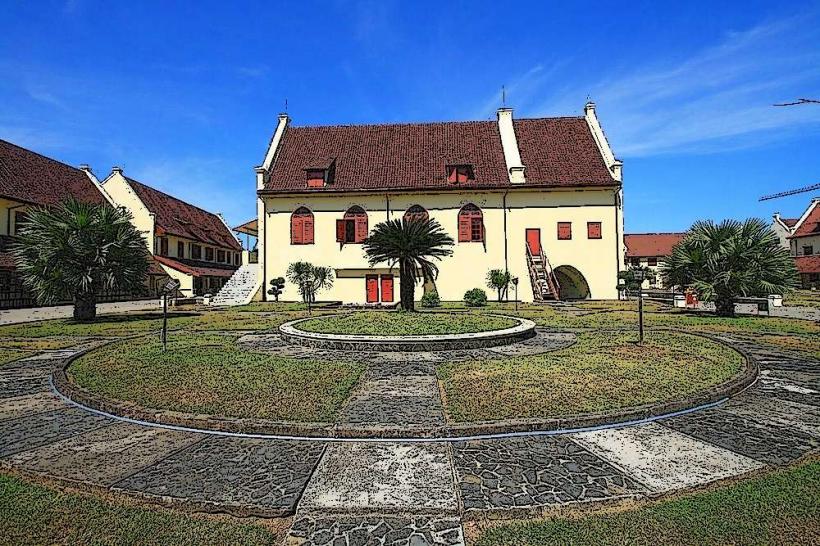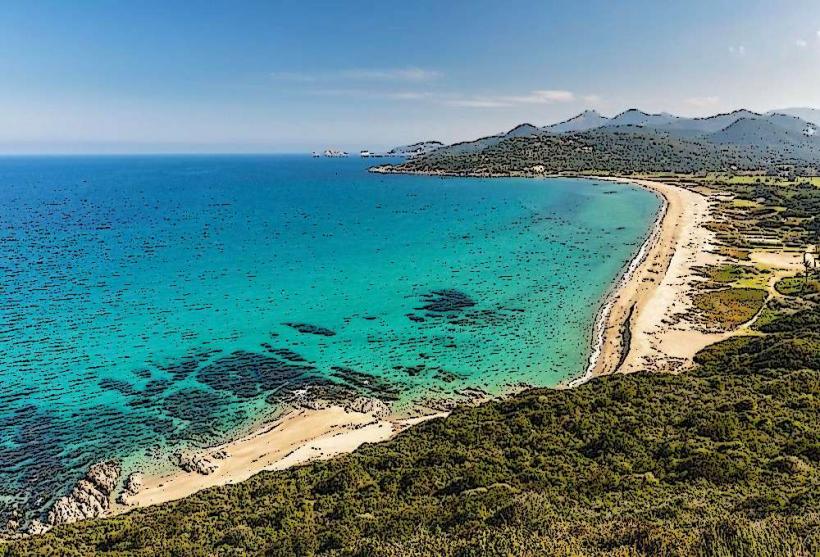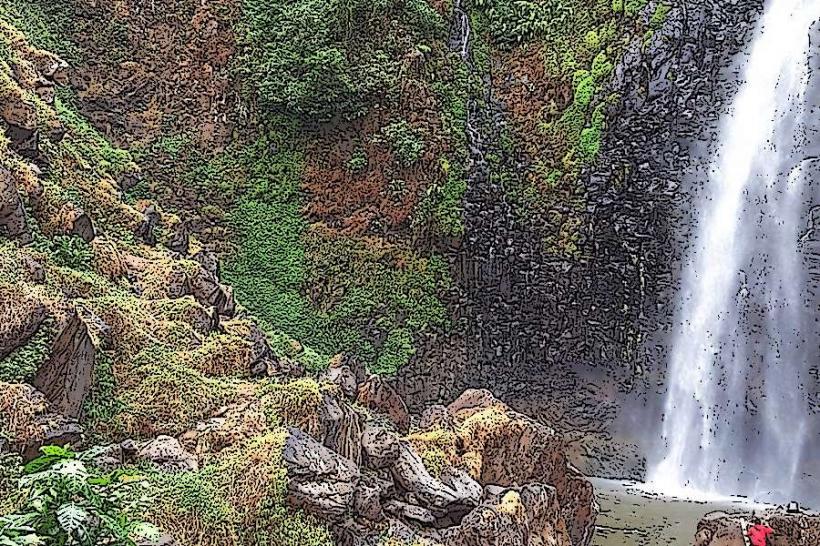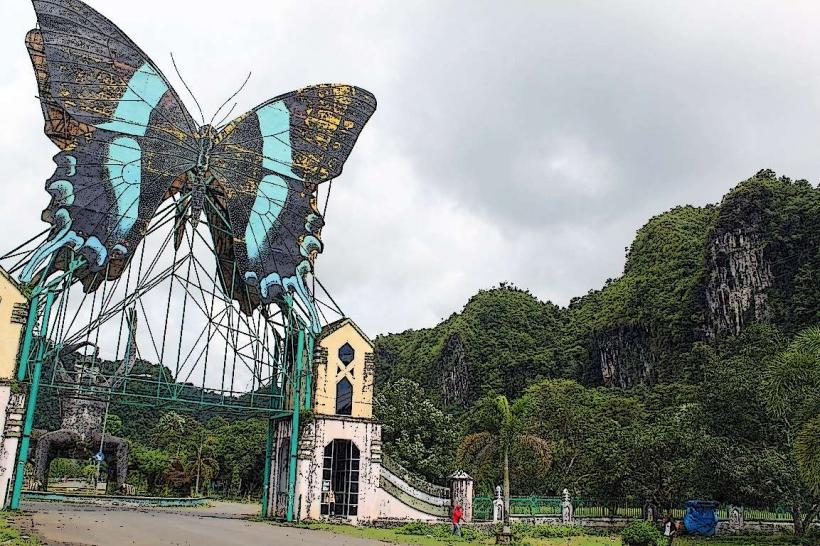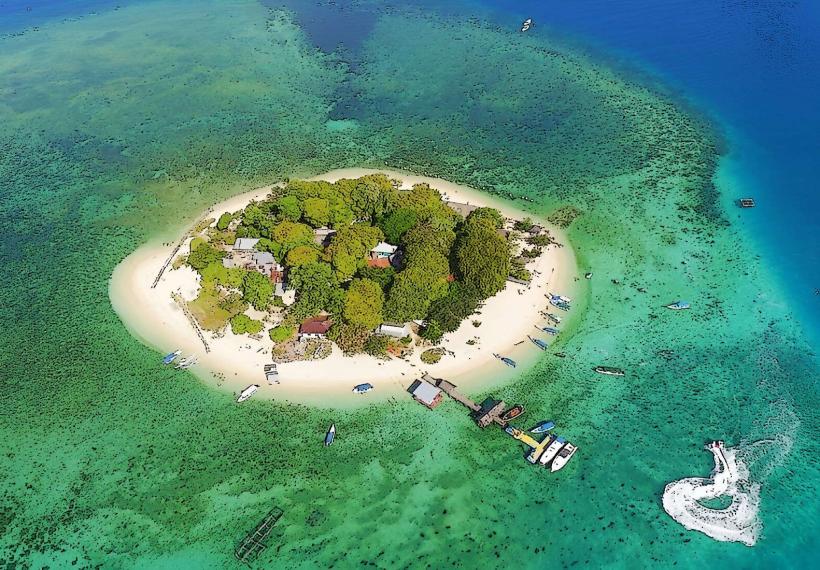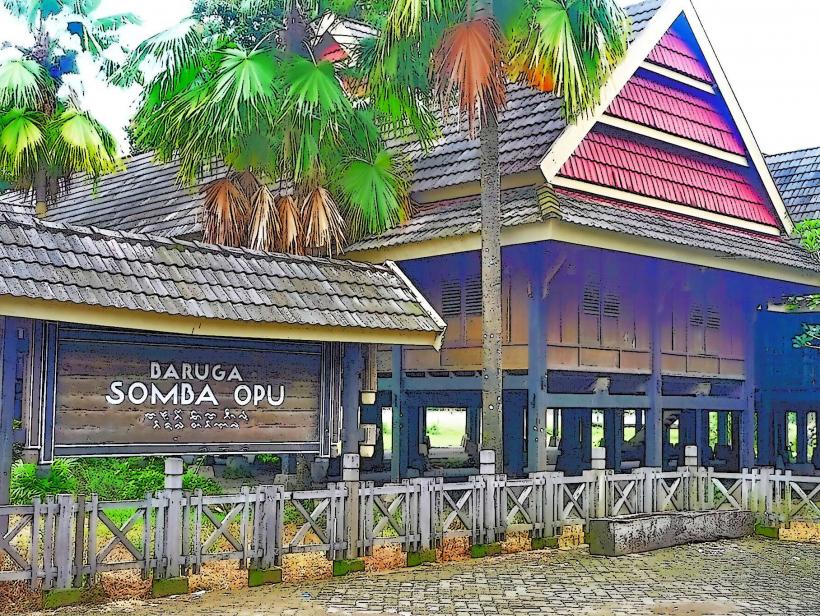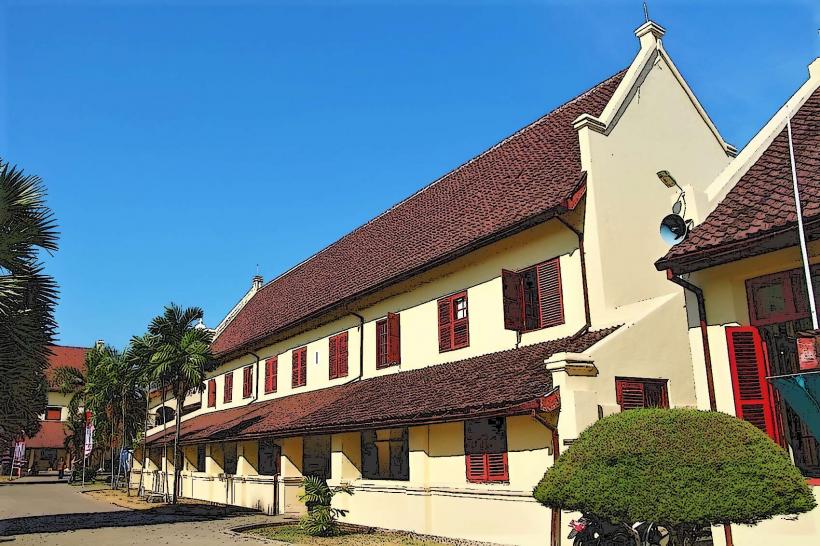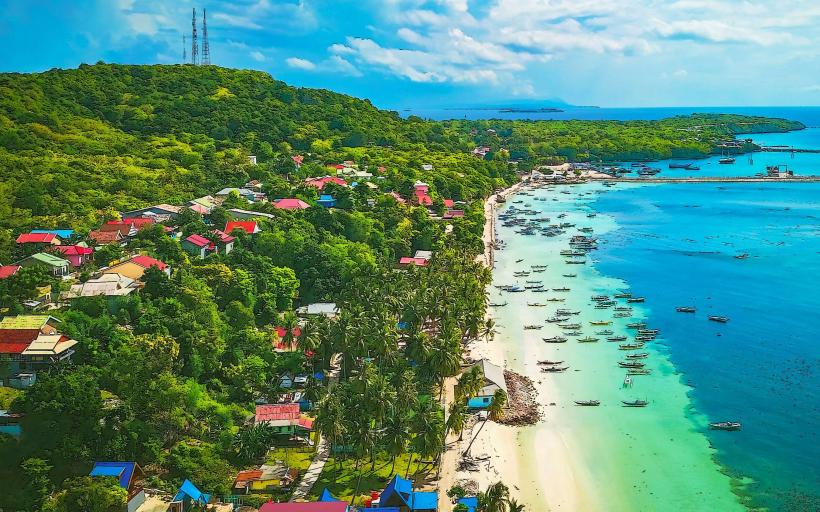Information
Landmark: Makassar Floating MosqueCity: Makassar
Country: Indonesia
Continent: Asia
Makassar Floating Mosque (also known as Masjid Apung Makassar) is a stunning and unique mosque located in Makassar, South Sulawesi, Indonesia. As one of the most iconic landmarks in the city, it stands out due to its distinctive design and its location on the Losari Beach, seemingly floating over the sea. The mosque is not only a place of worship but also a major cultural and architectural attraction in the region.
Key Details about the Makassar Floating Mosque:
1. Location and Accessibility
- The Makassar Floating Mosque is situated on Losari Beach, one of the most famous locations in Makassar, which offers scenic views of the Makassar Strait. The mosque is positioned right by the water, giving it the appearance of floating, especially during high tide when the sea comes close to its base.
- It is easily accessible from the city center of Makassar and can be reached by car, taxi, or even on foot from many parts of the city, as Losari Beach is a popular destination for both locals and tourists.
2. Architectural Design
- The Makassar Floating Mosque is an architectural marvel, designed with a blend of modern and traditional Islamic elements. The mosque features a large, domed structure with four minarets at each corner, creating a majestic silhouette against the horizon.
- The mosque’s main structure is elevated above the water, supported by piles or pillars, giving it the appearance of floating on the sea, especially at high tide. This unique design is what makes the mosque so distinctive and has earned it the nickname “floating mosque.”
- The mosque’s exterior is adorned with intricate Islamic motifs, including geometric patterns and calligraphy, showcasing the rich cultural heritage of Islam. The combination of modern architecture and traditional design elements makes the mosque a visually striking landmark.
3. Size and Capacity
- The mosque is relatively large, with a capacity to accommodate up to 10,000 worshippers during prayer times. It features spacious prayer halls for both men and women, as well as designated areas for ablution (wudu) and other religious activities.
- The mosque’s interior is equally stunning, with high ceilings, large windows, and decorative Islamic art creating a serene and peaceful atmosphere for prayer and reflection.
4. Symbolic Significance
- The Makassar Floating Mosque symbolizes the strong influence of Islam in South Sulawesi and Makassar in particular. It is a symbol of the region’s spiritual heritage, with the mosque serving not only as a place of worship but also as a cultural and community center for the Muslim population.
- The mosque’s location by the sea also represents the harmony between nature and faith, with the ocean serving as a reminder of the vastness and greatness of God. The mosque’s floating appearance underscores its connection to the environment, making it an embodiment of both spiritual and natural beauty.
5. Tourism and Visitor Experience
- The mosque has become a major tourist attraction in Makassar, drawing both local and international visitors who come to admire its stunning architecture and serene atmosphere.
- Tourists are welcome to visit the mosque, and many choose to explore its beautiful surroundings, including the Losari Beach promenade, which is a popular place for walking, jogging, and enjoying sunset views.
- Visitors are encouraged to observe the mosque’s prayer times and attend the daily prayers, experiencing the peaceful and spiritual atmosphere of the mosque. The mosque is also a great place for photography, as its design and location make it one of the most picturesque landmarks in Makassar.
6. Cultural and Community Activities
- In addition to being a place for prayer, the mosque is an important center for cultural and community activities. It hosts a variety of events, including religious lectures, Islamic studies, and community outreach programs. The mosque is actively involved in charitable initiatives aimed at improving the lives of local residents, especially during the Ramadan fasting month and Eid al-Fitr celebrations.
- The mosque also serves as an educational center, offering Islamic courses and programs for children and adults alike. These programs focus on religious teachings, values, and the importance of community service.
7. Best Time to Visit
- The best time to visit the Makassar Floating Mosque is during the daylight hours, when the mosque is open to the public and visitors can appreciate the beauty of its architecture in full. Sunrise and sunset are particularly popular times for photography, as the mosque looks especially stunning against the colorful skies.
- Visitors can also attend one of the daily prayers at the mosque to experience its spiritual ambiance. Eid prayers and special events during the holy month of Ramadan are particularly significant, drawing large crowds of worshippers.
8. Facilities
- The mosque is equipped with all necessary facilities to cater to the needs of its visitors, including prayer spaces, ablution facilities, and public restrooms. The mosque is also accessible to people with disabilities, with ramps and other accommodations available to ensure everyone can enjoy the mosque's facilities.
- Parking is available for visitors who come by car, and the mosque is conveniently located near other attractions along Losari Beach. Nearby, there are cafes, restaurants, and other places for visitors to relax after exploring the mosque.
9. Conservation and Preservation
- Given its unique location and architectural significance, the Makassar Floating Mosque is carefully maintained and preserved. Efforts are made to ensure that the mosque remains in good condition despite its exposure to the elements, such as saltwater and coastal winds.
- The mosque’s management team works closely with local authorities and community organizations to ensure the building remains a symbol of both spiritual and cultural pride for Makassar.
10. Conclusion
The Makassar Floating Mosque is a must-see landmark for anyone visiting Makassar. Its unique design, serene setting, and rich cultural significance make it one of the most iconic religious structures in Indonesia. Whether you're a religious visitor, a history enthusiast, or simply someone interested in stunning architecture, the mosque offers a peaceful and inspiring experience. The mosque’s floating appearance, combined with its impressive architecture and spiritual atmosphere, makes it a truly unforgettable destination.

